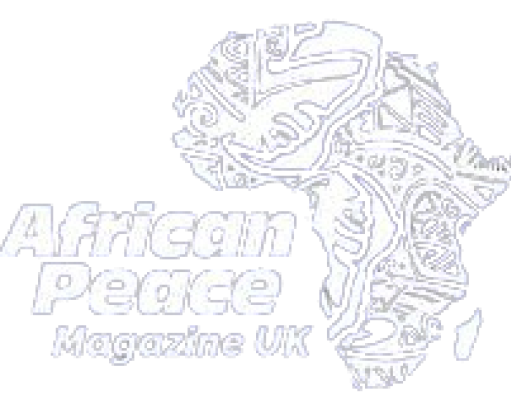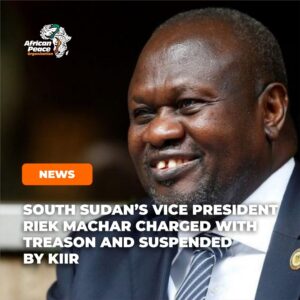South Sudan’s Vice President Riek Machar Charged With Treason and Suspended by Kiir
By: Itoro Etukudo
Opposition denounces charges as political ploy, raising fears of renewed instability.
South Sudan’s First Vice President Riek Machar has been charged with murder, treason and crimes against humanity over his alleged role in attacks by an ethnic militia in March, the justice minister announced on Thursday, September 11.
Justice Minister Joseph Geng said the charges stem from assaults carried out by the Nuer-dominated White Army militia against government forces in Nasir, Upper Nile state, earlier this year.
More than 20 others, including former petroleum minister Puot Kang Chol, have also been indicted. Thirteen suspects remain at large.
Hours after the announcement, President Salva Kiir suspended Machar from office in a decree broadcast on state radio. Machar has been under house arrest since March, pending investigations.
The opposition SPLM-IO, led by Machar, rejected the accusations, denouncing them as politically motivated and aimed at undermining the fragile 2018 peace deal that ended South Sudan’s five-year civil war. That conflict, fought between forces loyal to Kiir and Machar, claimed an estimated 400,000 lives.
Human rights groups, including Human Rights Watch, have expressed concern over due process, noting that Machar has been detained for six months without trial. They have urged the government to ensure fair and transparent legal proceedings.
Analysts warn that the case threatens to unravel the country’s tenuous power-sharing agreement and risks reigniting ethnic tensions.
South Sudan, the world’s youngest nation, has struggled to maintain stability since independence in 2011, with recurring cycles of violence between rival factions.
International partners and regional observers have called for restraint, urging both sides to prioritize peace and avoid actions that could destabilize the country further.
Source: Human Rights watch





